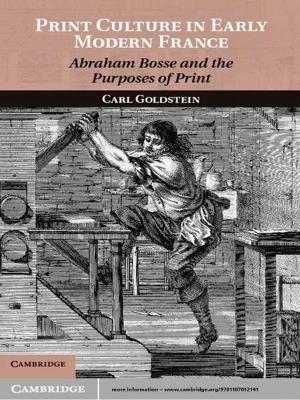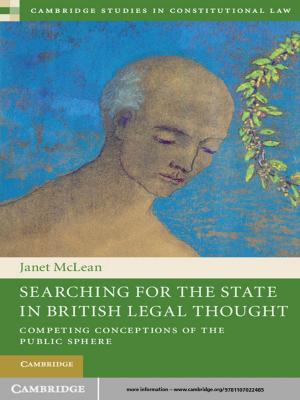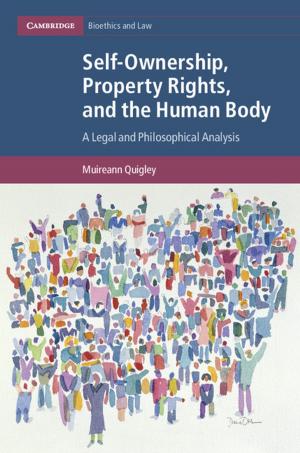The Anticolonial Front
The African American Freedom Struggle and Global Decolonisation, 1945–1960
Nonfiction, History, Military, Social & Cultural Studies, Political Science| Author: | John Munro | ISBN: | 9781316990643 |
| Publisher: | Cambridge University Press | Publication: | September 21, 2017 |
| Imprint: | Cambridge University Press | Language: | English |
| Author: | John Munro |
| ISBN: | 9781316990643 |
| Publisher: | Cambridge University Press |
| Publication: | September 21, 2017 |
| Imprint: | Cambridge University Press |
| Language: | English |
This is a transnational history of the activist and intellectual network that connected the Black freedom struggle in the United States to liberation movements across the globe in the aftermath of World War II. John Munro charts the emergence of an anticolonial front within the postwar Black liberation movement comprising organisations such as the National Association for the Advancement of Colored People, the Council on African Affairs and the American Society for African Culture and leading figures such as W. E. B. Du Bois, Claudia Jones, Alphaeus Hunton, George Padmore, Richard Wright, Esther Cooper Jackson, Jack O'Dell and C. L. R. James. Drawing on a diverse array of personal papers, organisational records, novels, newspapers and scholarly literatures, the book follows the fortunes of this political formation, recasting the Cold War in light of decolonisation and racial capitalism and the postwar history of the United States in light of global developments.
This is a transnational history of the activist and intellectual network that connected the Black freedom struggle in the United States to liberation movements across the globe in the aftermath of World War II. John Munro charts the emergence of an anticolonial front within the postwar Black liberation movement comprising organisations such as the National Association for the Advancement of Colored People, the Council on African Affairs and the American Society for African Culture and leading figures such as W. E. B. Du Bois, Claudia Jones, Alphaeus Hunton, George Padmore, Richard Wright, Esther Cooper Jackson, Jack O'Dell and C. L. R. James. Drawing on a diverse array of personal papers, organisational records, novels, newspapers and scholarly literatures, the book follows the fortunes of this political formation, recasting the Cold War in light of decolonisation and racial capitalism and the postwar history of the United States in light of global developments.















